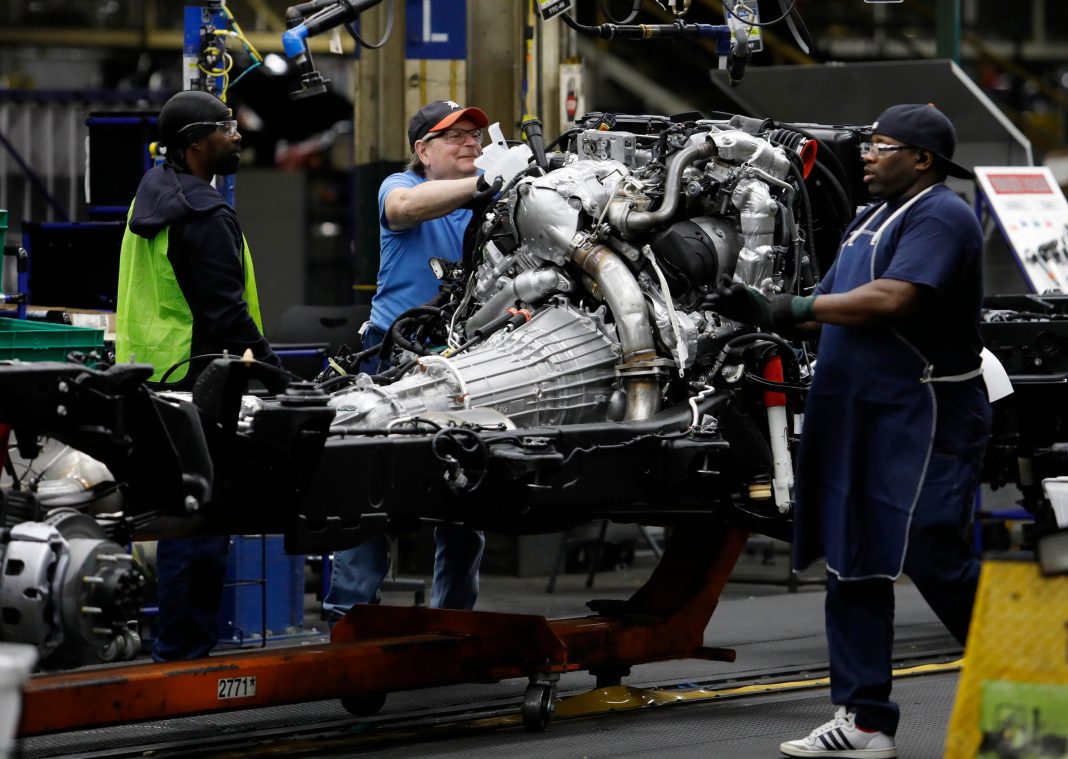In the ever-evolving landscape of the automotive industry, the ripple effects of natural disasters and labor disputes can profoundly impact production lines. Recently, General Motors (GM) found itself navigating these turbulent waters when it had to temporarily halt vehicle production at two key U.S. plants. The Flint Assembly in Michigan, known for its heavy-duty trucks, and the Arlington Assembly in Texas, which produces popular full-size SUVs including the Chevrolet Tahoe and Cadillac Escalade, both faced shutdowns due to supply chain disruptions stemming from Hurricane Helene.
The hurricane, which made landfall in Florida and wreaked havoc across the southeastern United States and parts of western North Carolina, has had devastating consequences. With at least 215 lives lost and hundreds still reported missing, the human toll of this disaster is heartbreaking. In the wake of such tragedies, the automotive giant’s decision to pause production reflects not only a commitment to operational efficiency but also a profound respect for the well-being of affected communities and their suppliers.
Jeffrey Morrison, GM’s vice president of global purchasing and supply chain, acknowledged the dual challenges posed by Hurricane Helene and a concurrent strike by port workers. The latter disruption, though resolved just as production was set to resume, highlighted the fragility of supply chains in a globalized economy. Morrison noted that the recent challenges have prompted GM to take a closer look at its supply chain management practices, particularly in light of the disruptions experienced during the COVID-19 pandemic.
“COVID really helped us map our value chain a lot deeper,” Morrison stated at an auto conference hosted by the Rev. Jesse Jackson’s Rainbow Push Coalition in Detroit. This insight underscores a pivotal shift in how companies like GM view their supply chains—once seen as linear and straightforward, they are now recognized as complex networks with numerous interdependencies. The pandemic served as a wake-up call, revealing vulnerabilities that many organizations had previously overlooked. As a result, GM has invested in better tracking of parts and understanding the sub-tiers of its supply network, a move that could prove invaluable in mitigating future disruptions.
While GM has not disclosed specific details about which suppliers were affected by the hurricane, the automaker’s proactive approach to assist these entities during such crises is noteworthy. By fostering collaboration and open communication with suppliers, GM aims to not only minimize the impact on its production facilities but also contribute to the overall resilience of the automotive supply chain.
As the industry grapples with the realities of climate change, labor relations, and global supply chain complexities, GM’s experience serves as a case study in adaptability. Companies must remain vigilant and prepared to respond to unforeseen challenges, whether they stem from natural disasters or labor disputes. By learning from past disruptions and leveraging technology to enhance supply chain visibility, automakers can better navigate the stormy seas ahead.
In conclusion, the recent production halts at GM highlight the intricate interplay between global events and local operations. As the automotive industry continues to evolve in response to such challenges, it is clear that adaptability and foresight will be critical for long-term success. The lessons learned from Hurricane Helene and the ongoing evolution of supply chain management will undoubtedly shape the future of this dynamic industry.

